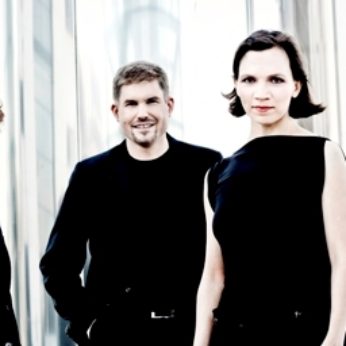Schumann’s three quartets were written in a frenzy of creativity in the early summer of his so-called chamber music year of 1842, when he also wrote the piano quintet and piano quartet. The previous September his wife Clara had given birth to their first child, but already in February she felt obliged to take off on an arduous concert tour. She was, after Liszt, the greatest pianist of their time and in one tour could earn enough to keep the family for a year; while Schumann, to his chagrin, could still earn very little. But the tour precipitated the first crisis of their marriage and, abruptly in Hamburg, Schumann deserted his wife and went home to Leipzig. It really was the most stupid thing I ever did to let you go. God bring you home. Should I have neglected my own work to be your companion in the trip? Should you have left your talent unused when you are at the peak of your powers? No – we are a Modern Couple and hit on a way out, that was all. But what will the world say Clärchen? What will Leipzig say? Your father – I can hardly write for rage – is running all over Dresden already saying we are separated. He is an evil and vicious old brute. But that and the loneliness have taught me one thing. It will never, never happen again.
The three quartets were finished by the end of July, but at a terrible price. His behaviour grew more and more erratic, his headaches drove him to despair, he heard sounds in his head – a dark, hollow singing noise. But the music was wonderful – he had found a way to push at the edges of these strictest of rules – four instruments only, all the colour, the richness and harmony to come from that – and made something new and rooted and wholly fine. Although written quickly, Schumann had been working at the idea of string quartets for several years and methodically prepared himself for their composition with counterpoint exercises and study of his illustrious predecessors. I love Mozart dearly but Beethoven I worship like a god who remains forever apart, who will never become one with us.
Schumann in his review quoted above made an exception for Mendelssohn in his general condemnation of post-Beethoven quartet writers (do we assume he never saw Schubert’s quartet scores despite his time in Vienna?) – and went on to dedicate his three quartets to his friend and colleague. When Schumann declared he did not know how to repay Mendelssohn’s many kindnesses, the older composer replied: the quartets, Schumann, the quartets.
Schumann opens his F major Quartet with one of his most disarming themes, whose wistful but captivating melody circles and dances its way throughout the movement. There are contrasting ideas but the design is essentially monothematic despite a forceful development section. The quasi Variazioni slow movement begins with a tranquil serenade-like theme, later followed by five quasi variations, which are closer to a form of continuous development, exploiting differences of texture and register. The theme is sumptuously restated in the final variation before the mysterious coda.
The brief Scherzo pays light-footed homage to the Quartet’s dedicatee, while the witty Trio is straight from opera-buffa beginning with the cello leading and the rest dancing attendance. The Trio returns as a delightful coda. The Finale finds Schumann in a jovial mood. The principal theme verges on being a moto perpetuo and this restless and excitable frame of mind drives the movement at a relentless pace to its fiery conclusion.
